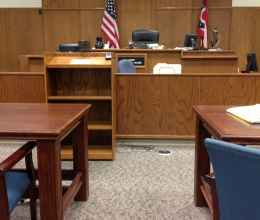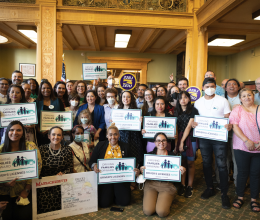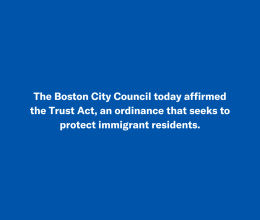
Today, the Massachusetts Major City Chiefs Association and the Massachusetts Chiefs of Police Association endorsed a version of the Safe Communities Act that would include proposed amendments allowing police to temporarily hold certain individuals who are the subject of ICE detainers before they are admitted to bail, unless a judge orders them released. The amendments would leave in place most of the protections that the bill seeks to create, including a ban on 287(g) agreements, limitations on when police can notify ICE about a non-citizen in their custody, due process protections for immigrants in local custody who have come to the attention of ICE; and a prohibition on Massachusetts ever taking part in a federal registry that is based on race, religion, or nationality.
The ACLU of Massachusetts issued the following statement:
"The Safe Communities Act addresses one of the most important civil rights issues before the legislature in decades. Doing nothing to defend immigrants in Trump’s America is simply not an option; elected officials in Massachusetts need to decide with whom they stand. Today’s endorsement by the police chiefs confirms what community members and law enforcement both know to be true: everyone is safer when police focus on local concerns instead of acting as immigration agents. The Safe Communities Act would go a long way to creating trust between immigrant communities and their local and state government. We recognize and appreciate that law enforcement is stepping forward to lend its unambiguous support for the underlying goals of the Safe Communities Act. We share a common goal of enhancing public safety in every community across the commonwealth by clarifying that law enforcement’s proper role is to protect and serve all residents. Nonetheless, a proposal that would treat immigrant residents of Massachusetts differently than other community members inevitably raises concerns. We appreciate the spirit in which these proposed changes are offered and look forward to working with the bill sponsors and legislative leadership to move forward the strongest bill possible."




